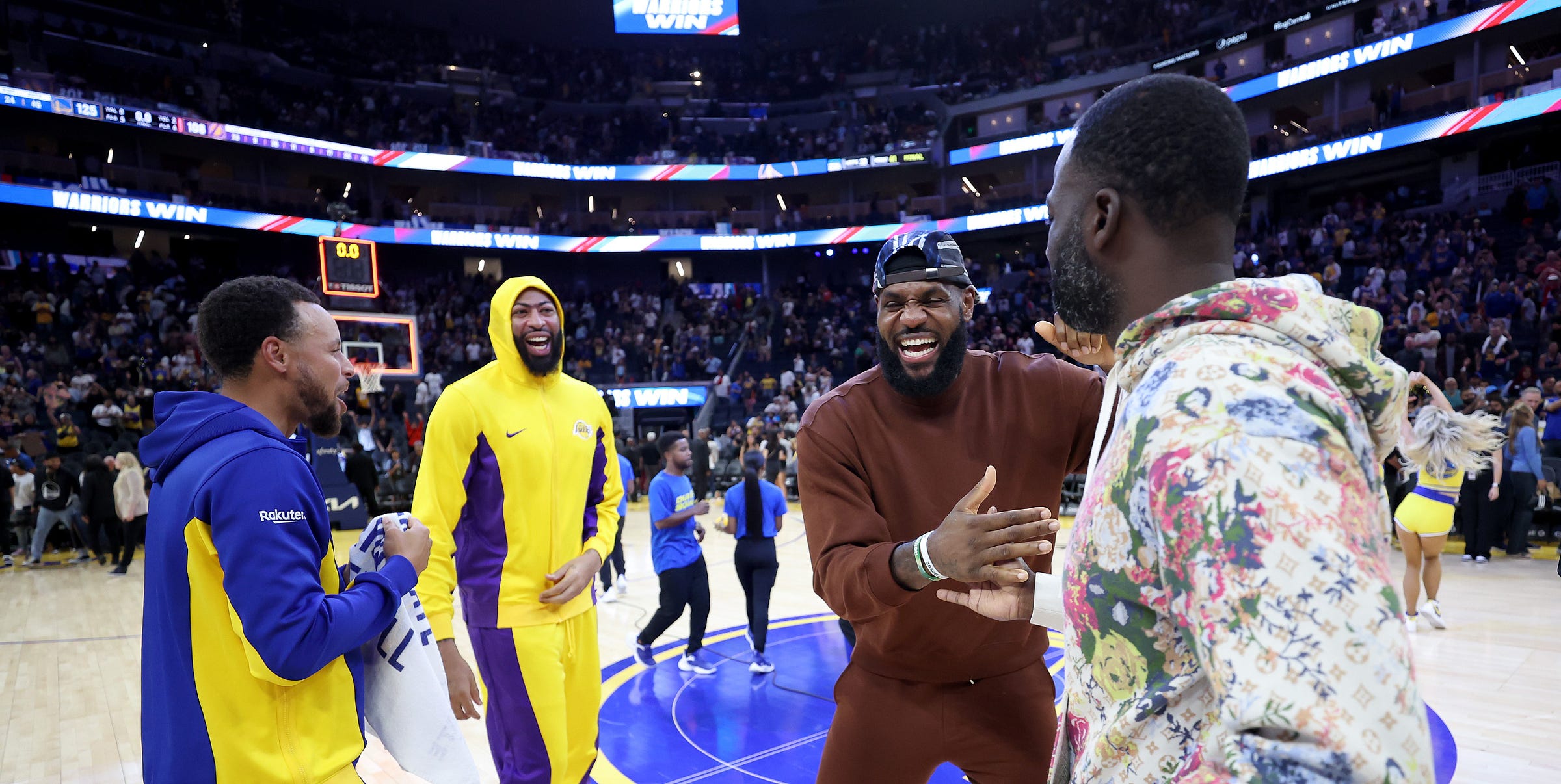💙 & Disrespect in the NBA
A new NBA thing spotlights an eternal NBA theme
Love.
That’s why.
That’s one reason NBA players objected to the requirement that they run up the score to advance in the In-Season Tournament.
A week ago, Dean Oliver addressed the problem of players showing “disrespect” in the IST and offered a clever solution based on statistical analysis. Before the IST is a memory, I want to follow up and focus on the human equation.
Here are a few brief observations that I hope you’ll 💙:

Love your enemies?
Love makes the NBA go ‘round, to borrow a song title or two.
(So does hate! As I note below.)
But some people ain’t feelin’ the love, including The Logo:

The NBA’s Age of Fraternization isn’t popular. Lots of people see it the way West does. Fans don’t feel affection for opponents. Fans prefer competitive fire to hugs.
But we can’t expect NBA players to maintain the hatred fans feel. Players spend tons of time together. They’re not always close, but friendships form just as they do in other professions. They share similar journeys, similar goals, similar problems. They share too much not to be comrades.
As Bill Simmons wrote in The Book of Basketball, West himself received love from a supposedly bitter rival:
The Frenemy Zone
It’s not all love, of course. Players can live in gray areas. They can be frenemies.
Long before Magic Johnson and Isiah Thomas kissed pregame at the NBA Finals and then tussled on the court, Bill Russell and Wilt Chamberlain spent quality time together and before facing off for supremacy between the lines and in the history books, as covered nicely by Jackie MacMullan:

As MacMullan recounts, the power of the Chamberlain-Russell bond contributed to the end of the friendship, when Russell expressed aloud his resentment that Wilt had “copped out” in Russell’s final game. Wilt was so wounded that he stopped talking to his friend, which in turn hurt Russell.
But the point remains — friendship, even in its absence, defined their relationship as much as their legendary rivalry did.
Love counts as much as hate, even for frenemies.
🏀 5x5 is supported entirely by you, the readers. Thanks! 💙
Please consider a free or paid subscription today, and share 🏀 5x5 with a friend.
Tatum tells on the IST
When Jayson Tatum made a point this week to tell Andre Iguodala and Evan Turner on their Point Forward podcast that he had expressed remorse to an opponent — Torrey Craig — for running up the score on a defeated Bulls team, he gave us a window into how fraternity transcends rivalry.
(By the way, the proliferation of NBA players teaming up for podcasts is another sign of fellowship.)
Given the voice that players have, I agree with what Dean wrote: This kind of complaint makes the NBA likely to stop leaning so heavily on scoring margin for the In-Season Tournament1 … perhaps not immediately, as the league moves slowly sometimes, but eventually.
A word on hate 😡
Hate exists, and it works wonders. Hate and grievance are superfuels for driving interest in the NBA.
Enmity and resentment can raise the stakes, grab fans, and even lift the entire league, with the Lakers-Celtics rivalry of the ‘80s as a classic case.
So while this piece is (mostly) about love, let’s not pretend NBA players don’t feel hate. Players are human. Competitive young athletes have the same drive that competitive young athletes have always had.
But that doesn’t mean “disrespect” is what the league wants. The NBA has legislated against disrespect, in fact, and shown over and over what it wants and doesn’t want with how it officiates the game and punishes coaches and players.
P.S. 🖊️
I’ll revisit the themes of love, hate, and friendship in the NBA, but for today, I’ll leave you with something from another Bulls game, this one on Feb. 20, 2001.
Here’s what I wrote the morning after attending that game, where a couple of guys being playful and affectionate on the court led to a very peculiar moment:
Point differential will probably remain as a tiebreaker, even if the league finds ways to mitigate its importance. In fact, scoring margin is a longstanding tiebreaker for the NBA playoff standings, although so far down the list of tiebreakers as to be irrelevant.




great column. loved this, from my fave active player: "When Jayson Tatum made a point this week to tell Andre Iguodala and Evan Turner on their Point Forward podcast that he had expressed remorse to an opponent — Torrey Craig — for running up the score on a defeated Bulls team, he gave us a window into how fraternity transcends rivalry."
I really enjoyed reading this. It is refreshing to see the more 'human' side of the players, especially as us fans tend to sometimes to treat them as entertainment commodities instead of human beings at times.